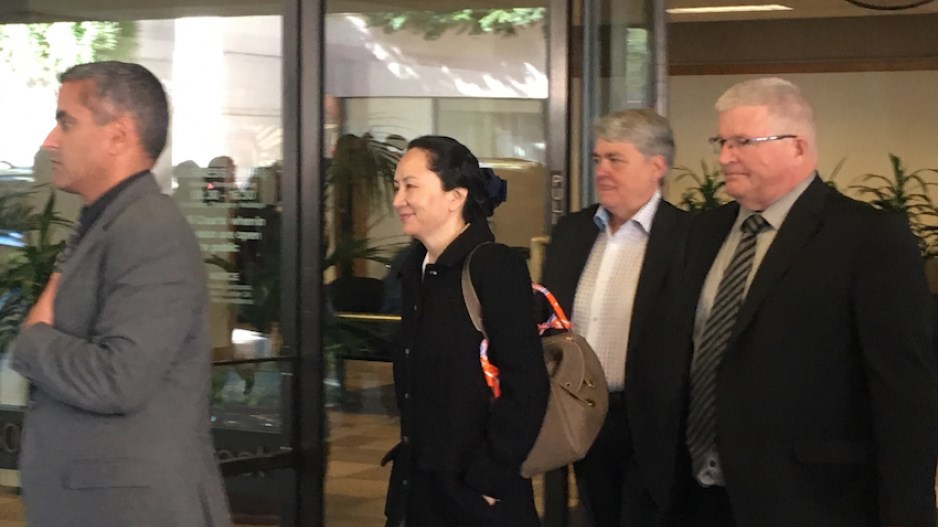The judge presiding over the Meng Wanzhou extradition case said the Huawei Technologies executive’s latest bid to introduce new evidence failed because it does not address issues that fit within the jurisdiction of extradition court.
BC Supreme Court Associate Chief Justice Heather Holmes released her reasons for the decision made two weeks ago to reject Meng’s bid to introduce new documents from Hong Kong court – documents that, Meng said, proved bank HSBC knew of Huawei’s links with a subsidiary that was operating in Iran and therefore cannot be a victim of fraud.
Fraud is one of the main charges facing Meng in the United States, as U.S. officials allege that Meng misled HSBC in a 2013 meeting about Huawei’s relationship to Skycom – which was operating in Iran.
Holmes, however, said any new evidence introduced needed to be able to prove the U.S. record of the case (ROC) – a prosecutor’s account of what happened that led to the charges – was manifestly false. The HSBC documents, Holmes wrote in her decision, did not meet the bar.
“Ms. Meng’s position in this application cannot succeed,” Holmes wrote. “The HSBC documents would no doubt be valuable to Ms. Meng in a trial. However… they are not capable of directly impeaching the evidence in the ROCs in a way that could affect the issues for determination in the extradition hearing.”
Among the key issues raised by Holmes is that, while the new documents showed a higher level executive (an HSBC managing director) was supposedly in the know regarding Huawei and Skycom, such a conclusion is not expressly available from the new documents alone.
Rather, that conclusion had to be inferred - which introduces competing inferences (one from Meng and another from the United States through ROC) where one has to be weighed against another for reliability - a role fulfilled by an eventual criminal trial and not by extradition processes.
“… Almost all of the documents sought to be adduced do not themselves expressly state the fact or conclusion on which Ms. Meng would rely,” Holmes said. “It is only inferences from the documents that support those facts or conclusions, and they are not the only reasonable inferences the documents support.”
Holmes also noted that Meng’s previous applications to introduce similar evidence also failed for the same reasons – even if this time, the documents came from a higher-level executive at HSBC.
“It should also be noted that L. [the managing director in the new evidence] was not a member of the HSBC risk committees that are said in the ROCs to have made the decision to retain Huawei as a client,” the judge ruled. “Inferences about L.’s state of knowledge, and L.’s own view about the risks of retaining Huawei, can play only a limited or indirect part in the assessment of whether the requesting state establishes a prima facie case on the elements of the alleged fraud.”
Holmes also noted that while the new documents did appear to contradict the facts presented by the Unites States through the ROC, the issues raised in these contradictions – namely, whether junior HABC officers spoke to the managing editor about the Huawei/Skycom relationship – are not relevant to the issues that an extradition hearing needs to assess.
“For the purposes of the extradition hearing, the issue arising from this portion of the ROCs is not whether junior employees reported the facts about the Skycom accounts to L., but rather whether the HSBC decision-makers, being the members of the risk committees as described in the ROC… were deceived by Ms. Meng’s alleged misstatements,” Holmes said. “Since L. is not said to have been among the decision-makers, statements about what was reported to L. are legally irrelevant in the extradition hearing.”
The full decision can be read at https://www.bccourts.ca/jdb-txt/sc/21/14/2021BCSC1412.htm




